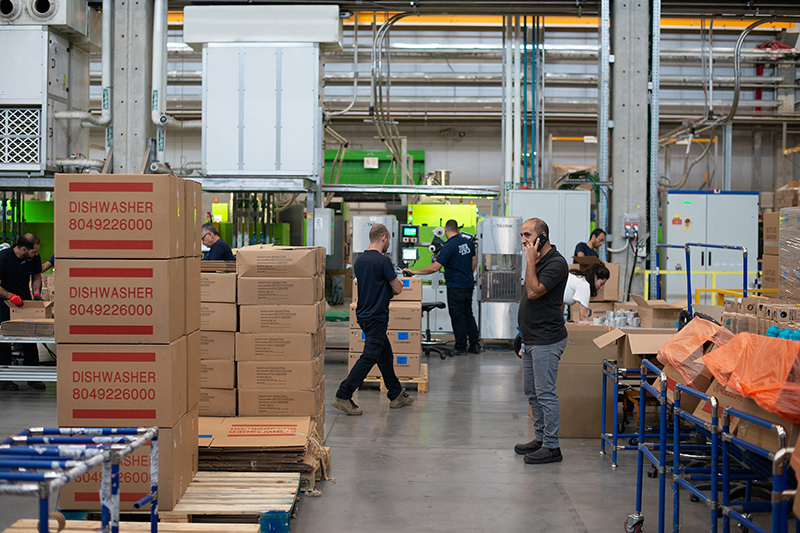DeepSeek R1: A Revolutionary Invention in AI & ERP Systems
Out of the blue, the DeepSeek R1 turned out to be a very strong foe in the AI domain, operating performance similar to OpenAI”s o1 models. This event has influenced the tech industry as a whole, because DeepSeek has shown that it can be trained easily how to build a powerful large language model (LLM) at a much lower price compared to the Silicon Valley firms. Indeed, this breakthrough is not only about saving costs; it also concerns transparent data handing. DeepSeek”s open-source nature allows the users to run it in a closed, self-owned environment that is suitable for those who do not want to use AI because of privacy issues.
In addition, the emergence of AI agents has brought a revolution in the area of artificial intelligence. If 2024 is the year of GenAI, it”s almost guaranteed that 2025 is the year of AI agents sometimes known as agentic AI. These AI agents, such as LAIDFU, give users the freedom to utilize both OpenAI and DeepSeek, respectively; this makes possible the task of processing data, which is a multi-step task that is out of range of GenAI. Unsurprisingly, AI agents have become popular because of their ability to handle multifaceted tasks easily.
Situated in Singapore, the Economic Development Board (EDG) is the agency that drives the adoption of ERP and AI technologies. Eligible firms in Singapore can leverage subsidies to develop their enterprise resources planning capabilities. The combination of ERP systems with MRP systems is recognized by many firms as a technology that has changed the game, especially in the chemical manufacturing sector.
Chemical manufacturers are fighting with unique difficulties; for example, they have to deal with intricate formulas and the matter of ensuring that they are complying with the rules and regulations. The merging of ERP systems with MRP systems enables such firms to manage their problems with confidence. For example, when formulating additives, there might be huge differences in them, with requirements that specify hundreds of liters of one additive and only a few milliliters of another. The possibility to apply automatic SKU unit of measure conversions with quantity levels specified of to six decimals places is a powerful tool.
Additionally, the chemical formulations” complexity with their levels of hierarchy and active and filler additives requires detailed management. ERP systems give the firms the ability to define parameters, manage ratios, and provide additive properties with precision. This guarantees the quality and potency of intermediates and finished products.

Ingredient variability is yet another obstacle to chemical manufacturers” growth. Handling concentrated additives, potencies, and strengths, as well as required dilutions, can be complicated. However, the implementation of ERP systems along with the MRP systems can keep up raw material variabilities by lot, which ensures a steady formulation and batch production process.
People”s eternal concern is safety, which has to be one of the basic principles to follow in any activity in life, including the chemical sector. Natural elements can be less dynamic through time and be the cause of a break in product quality or generate expired inventory. ERP systems will allow for the allocation of the right inventory in a batch job when not only the expiration dates but also the lot rotation methods of raw materials are taken into account.
Both storage and regulatory compliance are equally important. Some chemicals need separate storage areas which are less expensive, highly sensitive to temperature, and humidity. ERP systems locate the right storage space, develop the rules for product handling and perform all the inspection tasks to guarantee the quality and security of the product. Likewise, firms are faced with different local and international regulations like GHS and REACH that they have to comply with. Document management features, as well as integration with top-notch SDS authoring solutions, make it easy for firms to draft the necessary documents and labels.
Quality control is crucial in the chemical sector. ERP systems are the ones that allow firms to set up and execute customer-specific quality assurance controls, handle deviations and reworks, and fulfill the requirements of customers and auditors. The features that deal with nonconformance issues and CAPA, are on the other hand, beneficial in supporting continuous process improvement.
Lastly, the environmental issue that comes along with chemical production should not be neglected. ERP systems help firms define by-products in formulas, collect data, and conduct quality tests to track environmental outputs. With this proactive approach, it is possible to mitigate air and water pollution, greenhouse gas emissions, and waste generation.
A cloud-native ERP widely adopted by business in Singapore, Malaysia, Hong Kong and China. With over 6,000 customers in the region, aiM18 gains positive feedbacks from customer across different sectors, from manufacturers, distributors, retailers, service providers to NGOs. The renowned no-code approach saves customer a big sum of customization costs and countless hours of implementation man-days.
About LAIDFU (Let AI Do For You)
A configurable AI agent specifically designed for business use. Enterprise-class Data Guard functionality distinguishes LAIDFU from other consumer AI like chatbot or copywriting tools. Data Guard removes the hurdle of AI adoption by most companies in using sensitive corporate data. Powered by no-code approach, deployment of LAIDFU incurs far less developers (and development costs) in comparison with other AI studios.